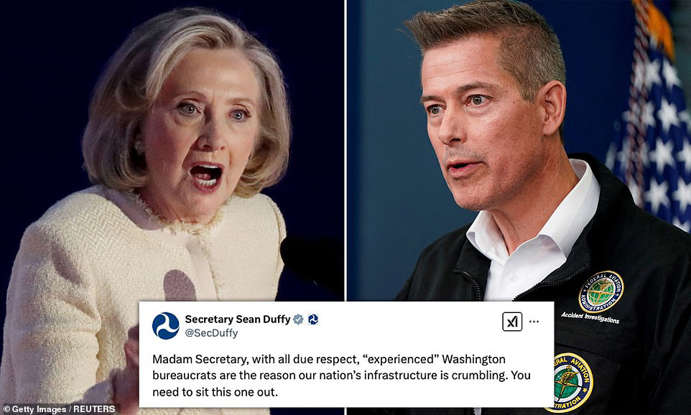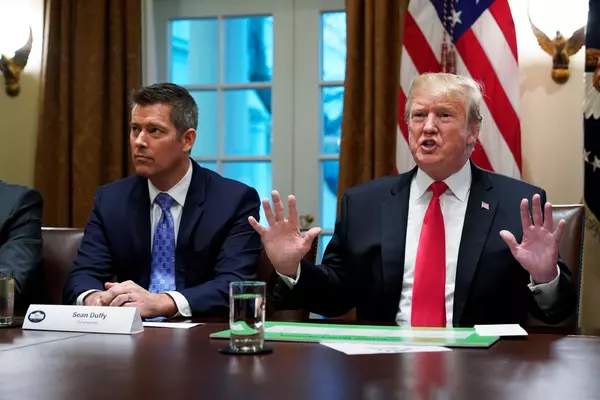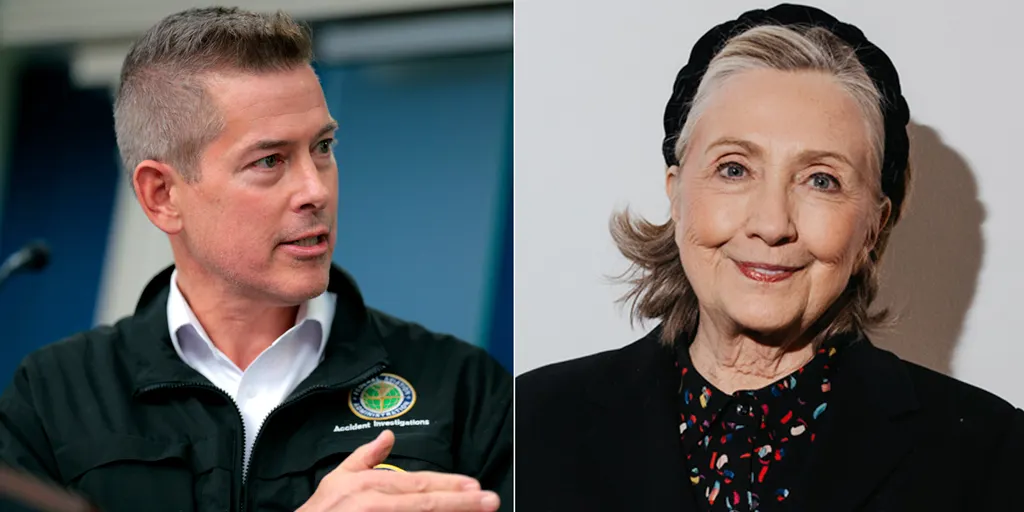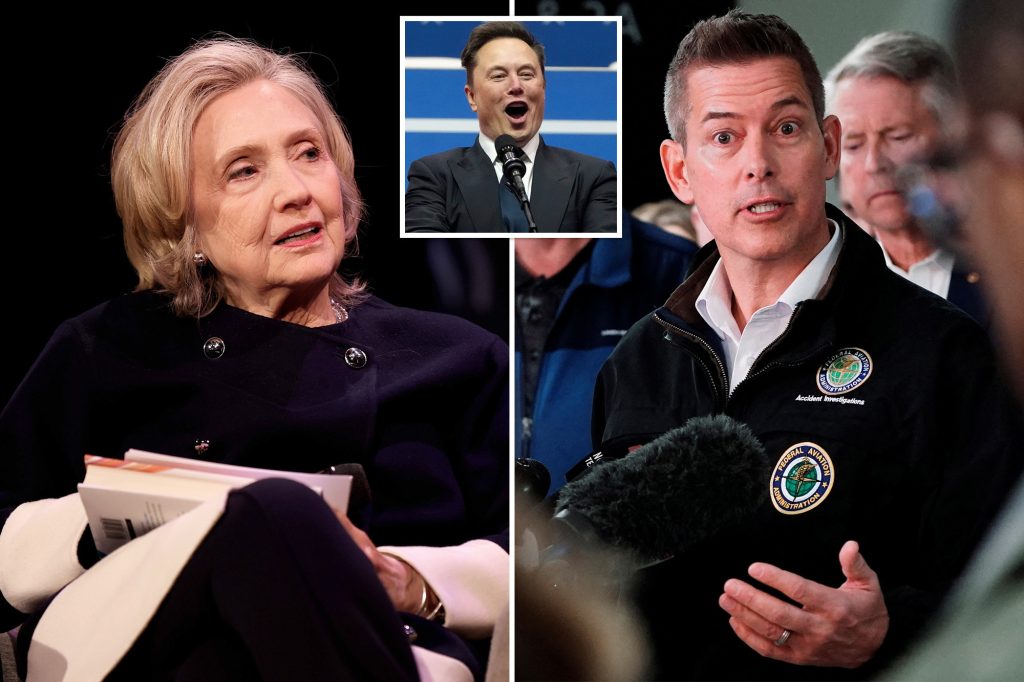Hillary Clinton, the former Secretary of State and two-time presidential candidate, has found herself in the midst of a political controversy following a sharp critique of the Trump administration’s new aviation safety initiative, spearheaded by the Department of Government Efficiency (DOGE). The initiative, announced by newly appointed Transportation Secretary Sean Duffy, aims to address long-standing issues in the nation’s aviation system, focusing on upgrading air traffic control systems and enhancing safety protocols.
But Clinton’s response to the announcement has quickly become a flashpoint in the ongoing political debate over government efficiency and the role of youth in public service.
In a recent post on social media platform X, Duffy shared what he called “big news,” revealing that DOGE would be leading efforts to modernize the nation’s aviation infrastructure. The project, which is part of a broader push to overhaul federal programs, is designed to address critical safety concerns and keep pace with the rapid evolution of technology in the aviation industry.

Duffy’s statement emphasized the urgency of tackling issues that have been plaguing the sector, including outdated air traffic control systems and deteriorating safety standards. With fatal incidents in recent years raising alarm, the administration believes the upgrades will restore public confidence in the nation’s air travel.
However, shortly after Duffy’s announcement, Clinton took to X to voice her concerns. In a comment that quickly gained attention, she questioned the qualifications of the DOGE staff, many of whom are young and relatively inexperienced. Clinton’s exact words were: “They have no relevant experience. Most of them aren’t old enough to rent a car. And you’re going to let them mess with airline safety that’s already deteriorated on your watch?”

Clinton’s criticism was rooted in a broader skepticism she has often expressed regarding the current administration’s handling of critical infrastructure projects. She argued that the staff’s youth and lack of experience could jeopardize the safety and reliability of the nation’s aviation system. This remark not only drew attention to the new initiative but also cast a shadow over the Trump administration’s broader approach to government efficiency, which relies on reducing bureaucracy and streamlining federal programs.
The response to Clinton’s comments has been swift and divisive. Supporters of Clinton argue that her critique highlights the importance of experience when it comes to managing crucial sectors like transportation, particularly in an area as sensitive as aviation safety. They contend that entrusting young staff with such a vital responsibility without adequate experience could lead to disastrous consequences.
On the other hand, critics of Clinton’s stance argue that her comments are out of touch with the current political climate, where calls for government efficiency and innovation are at an all-time high. Many supporters of the DOGE initiative believe that the younger generation’s tech-savvy, forward-thinking approach could be the key to overcoming the challenges that have long plagued federal infrastructure. The involvement of younger staff, they argue, brings a fresh perspective to solving problems that have been ignored for decades.
This exchange is not just a one-off political spat. It speaks to a deeper divide in American politics — the tension between tradition and innovation, experience and youth, bureaucracy and efficiency. As the country faces numerous challenges in modernizing its infrastructure and government systems, the question of who is best suited to lead these efforts remains hotly debated. While Clinton’s comments reflect concerns about competence and accountability, Duffy’s initiative reflects a growing belief in the power of change and modernization, even at the risk of disrupting established norms.
In the end, this debate may serve as a microcosm of broader conversations about the future of American governance. Can the nation’s infrastructure challenges be solved by a fresh, tech-driven approach led by younger individuals, or do we risk undermining critical systems by putting inexperienced staff in charge of crucial projects? While Clinton’s criticism may have sparked controversy, it has also shined a spotlight on the importance of ensuring that innovation and efficiency don’t come at the cost of competence and experience.

